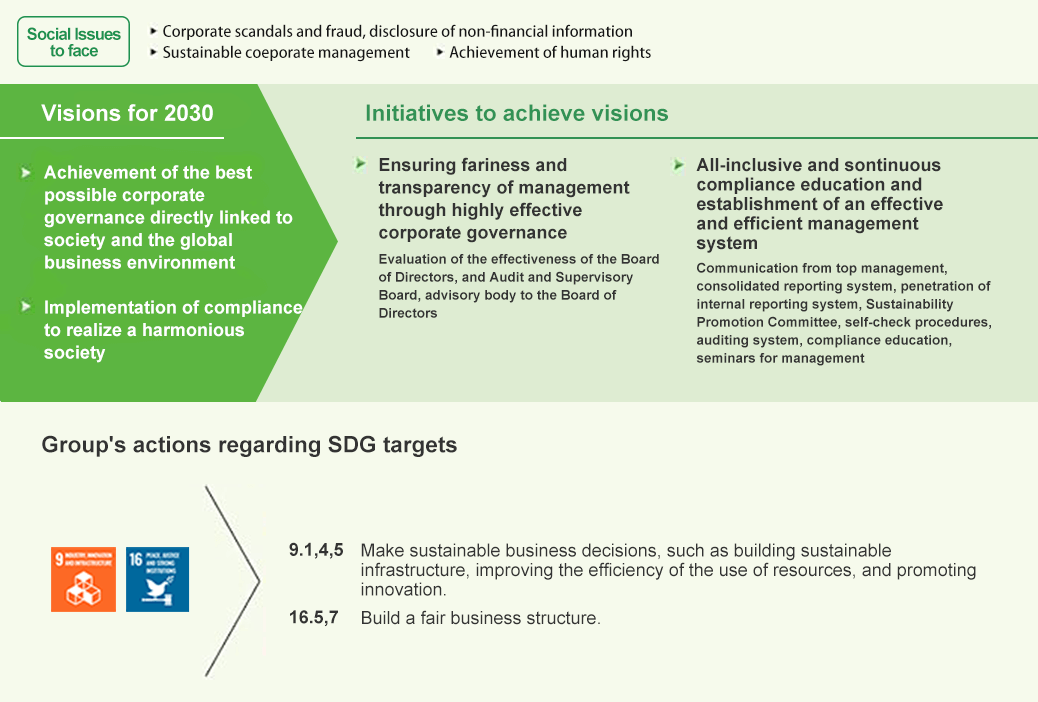
In order to grasp the issues that need to be addressed macroscopically in our wide range of business fields, we have identified Material sustainability themes (materiality). In identifying Material sustainability themes (materiality), we have summarized and expressed the social issues that should be resolved by utilizing our business fields and strengths from among many social issues, based on our company's history, philosophy, and business direction.
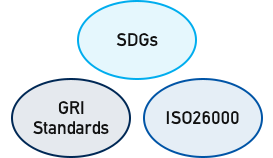
We created a long list of 300 items that we hope to solve, taking into account SDGs, ISO 26000, and GRI Standards as general social issues, and the Sustainability Accounting Standards Board (SASB) as industry-specific issues. Furthermore, we created a short list of 48 items, taking into consideration the integration of similar issues and their relevance to our company's areas of initiative.
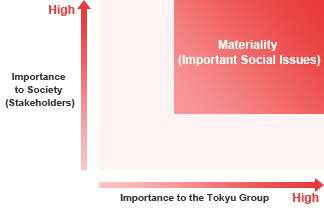
The shortlist was evaluated based on "importance to the Tokyu Group" and "importance to society" from the perspective of stakeholders, and a provisional assessment of Material sustainability themes (materiality) was made.
In identifying Material sustainability themes (materiality), a dialogue was held between external experts and the relevant executives.
*The affiliations and titles of the external experts are as of the time the dialogue was held.
Director and Lead Consultant MS&AD InterRisk Research & Consulting, Inc.
Naochika Tamura
When identifying Material sustainability themes (materiality), it is essential to consider the relevance of the group slogan, philosophy, and business, as well as the connection to the SDGs. To resolve social issues, a future-oriented Value Creation Story is important, and it is important to realize this through business while taking into account the future expectations of various stakeholders. In both urban and community development and railway, we hope to see initiatives that will be a model for other companies, pioneering the adoption of new technologies.
Executive Officer Deputy Chief Research Officer, Development Bank of Japan Inc.
Keisuke Takegahara
Tokyu's business model is long-term and incorporates the resolution of social issues, and it is a rare example worldwide of a company that is both profit-making and sustainable. It should be promoted as a corporate management model originating from Japan, and from that perspective, "sustainable Urban and community development" expresses the unique character of Tokyu Group. The brand that supports its current strengths, attention to human resources, governance, and the environment are all things that are attracting attention, and the strength of having developed urban and community development based on a long-term perspective should be communicated.
Chief Exective Officer, Sustainability Forum Japan
Toshihiko Goto
The major trends in recent times are the 2015 Paris Agreement and the adoption of the SDGs. This is a major turning point in human history and a paradigm shift. Tokyu Group has been successful with its unique business model, but in an era where the nature of Japanese companies may change dramatically, it needs to respond to future trends. In addition, given the current trends in the world, it is desirable for responses to climate change and biodiversity to be included.
After verifying the appropriateness of the assessment of the importance of the issues based on recommendations from external experts, the issues were identified at the Management Meeting and then at the Board of Directors meeting together with the medium-term management plan.
Additionally, we have set out the social issues we will address for each theme, as well as our "vision for 2030," and have positioned this as the basic management stance for Long-term Management Initiative.

Ensuring safety is the foundation of all our business, and for the Tokyu Group, which is responsible for a variety of infrastructure functions, providing stable services based on safety is an important responsibility.
In addition to the efforts we make in our daily operations, we are also working to ensure preparations for natural disasters such as large-scale earthquakes, in order to protect safety and the peace of mind that comes with it.
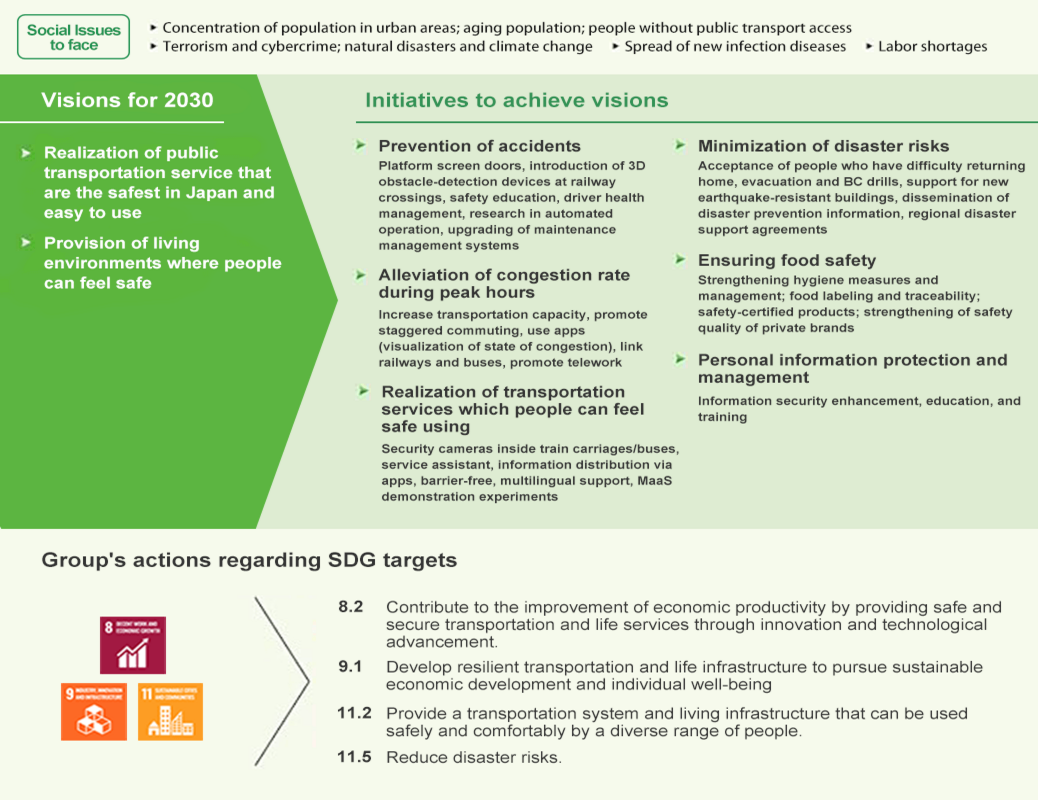

For the Tokyu Group, which operates a wide range of businesses closely related to the daily lives of its customers, with urban and community development based on its railway at its core, the sustainability of towns and cities is an important theme.
We will continue to implement various initiatives through our business to ensure that areas served by Tokyu’s railway lines remain "areas of choice" into the future.
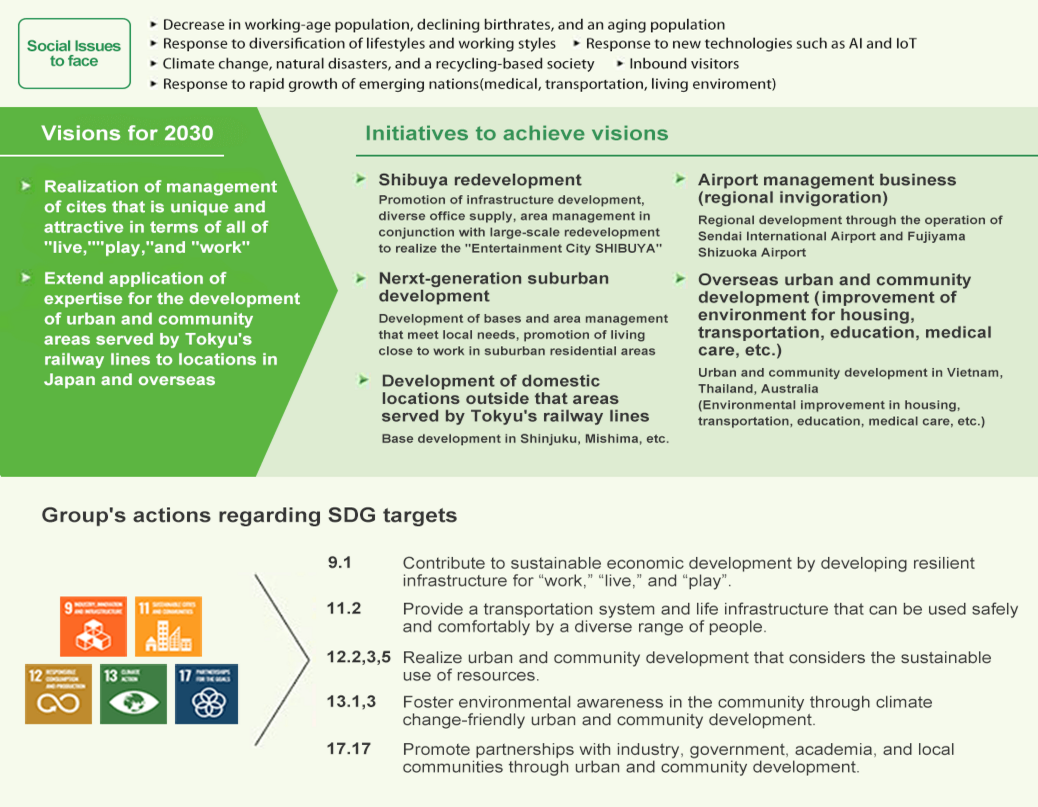

the Tokyu Group 's Mission Statement is to "to create beautiful living environments,in which each person can pursue individual happiness in a harmonious society."
The Tokyu Group provides a variety of comfort, security, a sense of quality, and satisfaction through its business so that each and every customer who lives, works, and spends their lives along the railway lines can achieve self-actualization and live a fulfilling life.
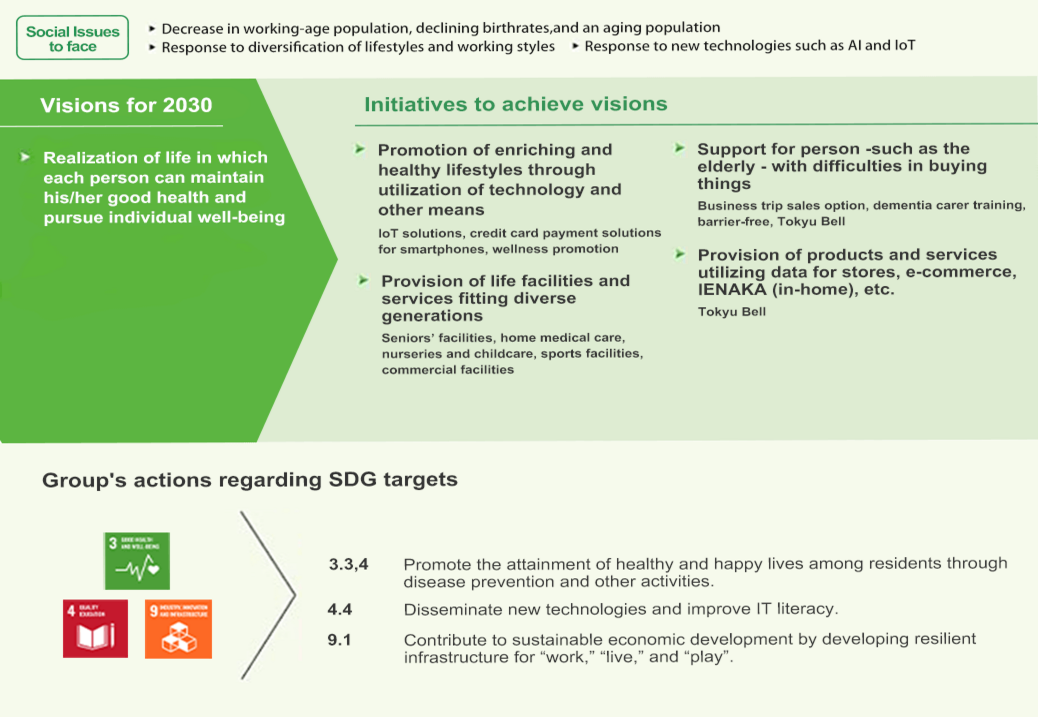

In Japan, where the birthrate is declining and the population is aging, improving productivity and pursuing innovation through the active participation of each individual are social issues.
We promote human resource development from two perspectives: proposing new workplaces and taking part in educational and cultural activities in society, and creating an environment in which employees can thrive and shine.
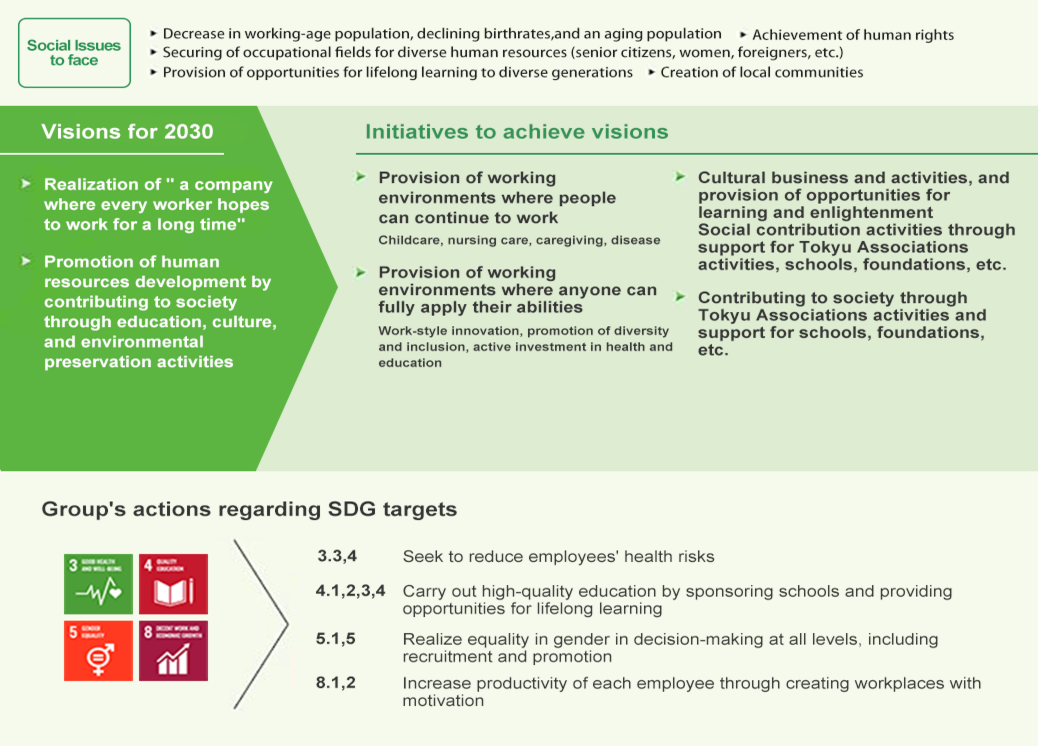

We aim to Urban and community development we can face the environmental challenges we face today, choose environmentally friendly actions without feeling any particular burden, and contribute to a sustainable society and the regeneration of the global environment.
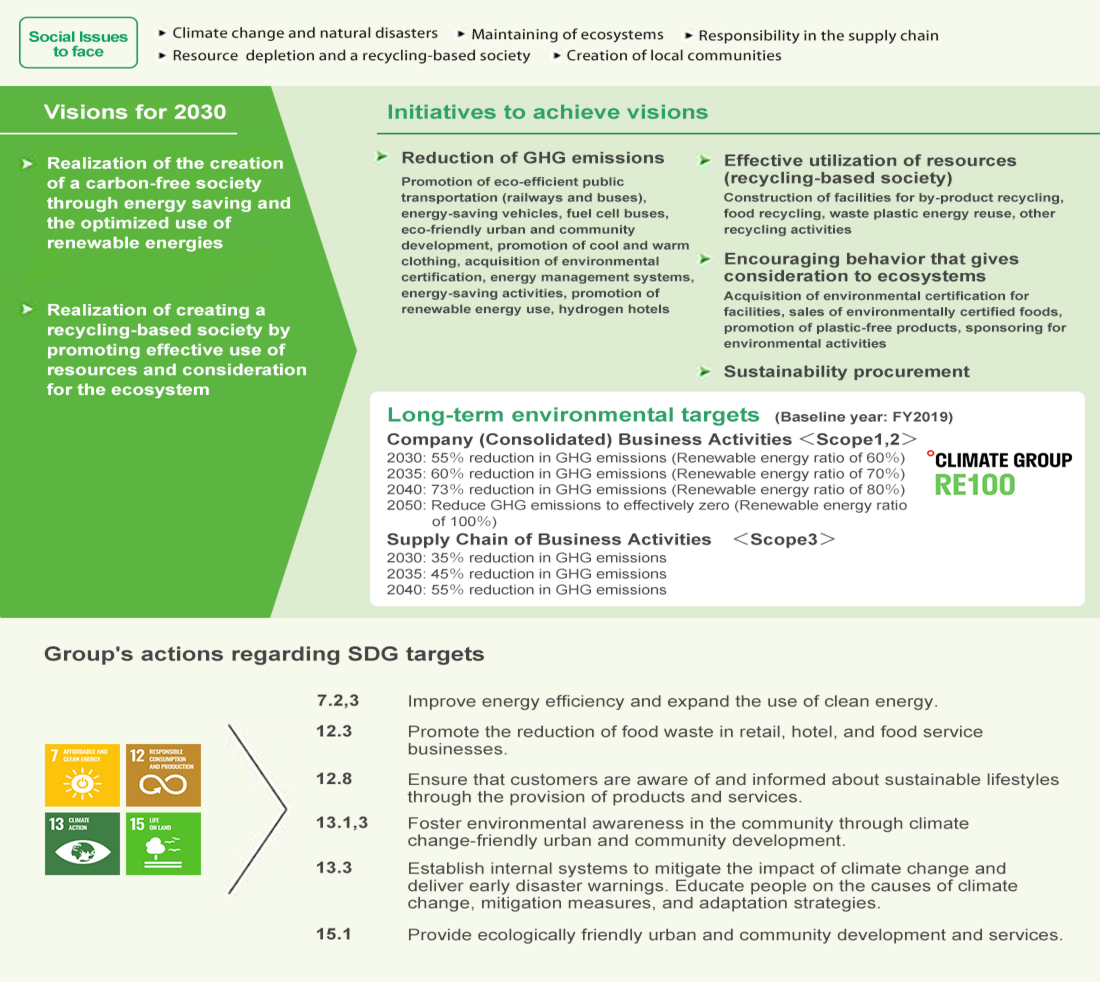
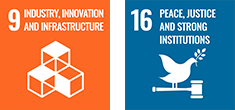
Because responding to changes in the business environment and gaining the trust of stakeholders are essential for sustainable corporate activities, we will steadily advance various corporate governance measures and compliance measures.
